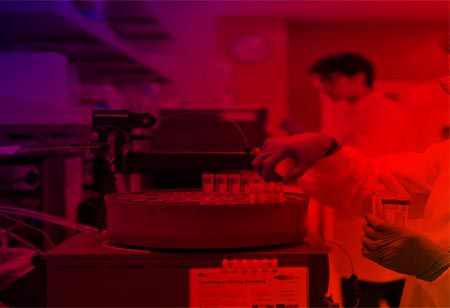Thank you for Subscribing to Healthcare Business Review Weekly Brief
Be first to read the latest tech news, Industry Leader's Insights, and CIO interviews of medium and large enterprises exclusively from Healthcare Business Review
Leveraging Emerging Technologies to Streamline Animal Healthcare
Industries are increasingly integrating digital technologies into their service and business processes.

By
Healthcare Business Review | Friday, February 10, 2023
Stay ahead of the industry with exclusive feature stories on the top companies, expert insights and the latest news delivered straight to your inbox. Subscribe today.
Digital adoption in the animal healthcare industry leverages emerging technologies to track, monitor, and diagnose animal health.
FREMONT, CA: Industries are increasingly integrating digital technologies into their service and business processes. In the healthcare industry, digital adoption enables animal healthcare units to deliver individualized care. Animal owners can detect almost all changes in health and activity levels, like temperatures and blood pressure to identify the animal that has the potential to get sick. Small animal veterinarians can create tailored, life-long health plans for pets based on the accumulated experiences of countless similar pets, which will assist pet owners in anticipating issues.
Technology holds great promise for improving animal health, productivity, and prevention. Innovation in animal healthcare allows caretakers and healthcare providers to structure their care based on prediction, monitoring, and diagnostics.
Healthcare institutions that leverage digital technologies to monitor animal health levels can offer greater protection against diseases and prevent diseases from spreading within a group of animals. Digital adoption in the animal healthcare industry facilitates a more streamlined observation while bridging the gap between humans and animals. Providers are using microphone systems to recognize fluctuations in poultry vocalization and computerized patient records and activity trackers for pets.
Emerging technologies make it easier for pet owners and caregivers to monitor their pets' health, behavior, eating habits, and locations. Veterinary technologies such as prediction, monitoring, and diagnostics can transform animal health for the benefit of animals and their keepers by enabling them to live longer lives.
Technologies: Technology based on predictive, monitoring, and diagnostics interact to uphold the health of individuals, herds, households, and pets. These technologies can generate cumulative knowledge to improve health outcomes based on modern data insights and analytics. By assessing samples of blood, oral fluid, and urine, veterinary diagnostics can identify diseases and parasites in animals on time, enabling prompt treatment for sick animals or acting as a powerful prevention tool if conducted regularly.
Evolution: Digital revolution products include predictive animal intelligence software, which aggregates veterinary records and results, and digital tracking devices such as smart collars, activity trackers, and ear or neck tags with GPS tracking sensors.






